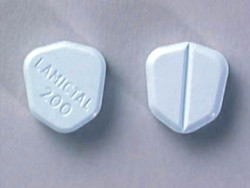 Stevens Johnson Syndrome is a severe and even life-threatening condition, that some Lamictal patients have suffered from.
Stevens Johnson Syndrome is a severe and even life-threatening condition, that some Lamictal patients have suffered from.
Lamictal (lamotrigine) was approved by the U.S. Food and Drug Administration in 1994 as an anti-seizure drug.
The drug was approved to treat both adults and children with epilepsy, and since its introduction to the market, has become a common treatment. Lamictal is developed and sold by GlaxoSmithKline.
Since it was released into the market, Lamictal has included several serious label warnings, including the risk of Stevens Johnson Syndrome (SJS) and Toxic Epidermal Necrolysis (TEN). TEN is a more severe form of SJS.
Lamictal SJS
Stevens Johnson Syndrome causes the epidermis, the top layer of skin, to blister and peel. These rashes are severe and painful, and are extremely similar to severe burns — so much so that patients with SJS are often treated in the hospital’s burn unit.
SJS rashes can lead to intense pain, eye problems, secondary skin infection, and internal organ damage. In most cases of Lamictal SJS, patients are permanently scarred. SJS can cover a large portion of skin, so the scarring can be widespread and disfiguring.
Lamictal SJS is an extremely dangerous condition, and it is not as uncommon as one might hope. SJS only affects about one in 1,000 adults who take Lamictal, or one tenth of one percent.
However, this severe complication is much more common in children, and affects about one in 50 children taking Lamictal. These are rather high numbers for a complication so severe and potentially life-threatening.
It is important to recognize the symptoms of SJS so that, if they appear, usage of Lamictal can be immediately stopped and hospital treatment sought immediately.
SJS symptoms include:
- facial swelling
- tongue swelling
- hives
- skin pain
- a red or purple skin rash, spreading within hours to days
- blisters on skin, mouth, nose, and/or eyes
- shedding of skin
Clinical trials reveal that about 10 percent of patients on Lamictal experience some form of rash on their skin shortly after initially using Lamictal. Not all of these rashes are associated with SJS, and most are not severe enough to require hospitalization, but wariness of these symptoms is highly encouraged by the medical community.
Toxic Epidermal Necrolysis, or TEN, is simply a more severe form of SJS. The difference between SJS and TEN lies in the severity of the symptoms.
A patient is diagnosed with SJS when these rashes cover 30 percent or less of the skin. When any more than 30 percent of the skin is covered with these intense rashes, the diagnosis progresses to its more severe form, Toxic Epidermal Necrolysis. TEN is more life-threatening, and has a mortality rate of over 40 percent, so it should be treated immediately.
Lamictal SJS Lawsuits
If you or someone you know has experienced SJS symptoms or TEN symptoms while using Lamictal, you may have cause for filing a Lamictal SJS lawsuit for medical and financial damages.
Do YOU have a legal claim? Fill out the form on this page now for a free, immediate, and confidential case evaluation. The Stevens Johnson Syndrome attorneys who work with Top Class Actions will contact you if you qualify to let you know if an individual lawsuit or class action lawsuit is best for you. [In general, SJS lawsuits are filed individually by each plaintiff and are not class actions.] Hurry — statutes of limitations may apply.
ATTORNEY ADVERTISING
Top Class Actions is a Proud Member of the American Bar Association
LEGAL INFORMATION IS NOT LEGAL ADVICE
Top Class Actions Legal Statement
©2008 – 2025 Top Class Actions® LLC
Various Trademarks held by their respective owners
This website is not intended for viewing or usage by European Union citizens.
Get Help – It’s Free
Help for Victims of Stevens Johnson Syndrome
If you or a loved one were diagnosed with Stevens Johnson Syndrome (SJS) or toxic epidermal necrolysis (TEN) after taking a prescribed or over-the-counter medication, you may be eligible to take legal action against the drug’s manufacturer. Filing an SJS lawsuit or class action lawsuit may help you obtain compensation for medical bills, pain and suffering, and other damages. Obtain a free and confidential review of your case by filling out the form below.
An attorney will contact you if you qualify to discuss the details of your potential case at no charge to you.
Oops! We could not locate your form.












